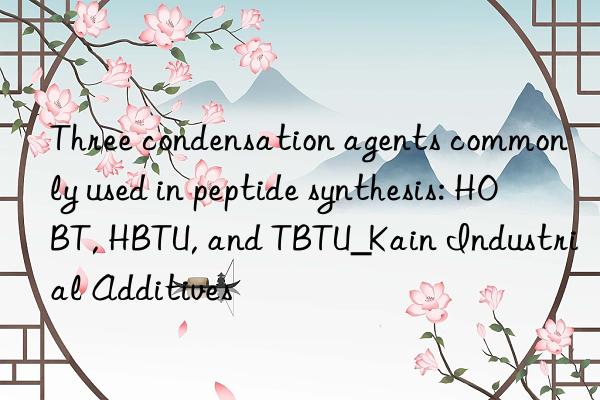
This article mainly introduces three condensation agents commonly used in peptide synthesis: HOBT, HBTU, and TBTU, which are used for the condensation effect in solid-phase peptide synthesis. HOBT prevents racemization in peptide synthesis, and HBTU and TBTU are strong condensation reagents in peptide synthesis.
[The difference between condensation agents HBTU and TBTU] HBTU and TBTU are enhanced versions of HOBt, which have better effects and generate HOBT after reaction. The price of HBTU is cheaper, about 350 yuan for 100g. TBTU is more expensive. The condensation effect of TBTU is slightly better.
[TBTU] Among the many coupling agents, the urea ionic peptide condensation agent TBTU has the widest application range and the highest cost performance. Urea ionic polypeptide condensing agent is a multifunctional reagent for activating carboxylic acid. They react and combine amino acids with amines in one step, without the need for pre-activation of the acid. Their advantages include convenient and practical reaction procedures, rapid in situ activation, minimal side reactions, commercial availability, stability, solubility in a wide range of solvents including water and easy removal of coupling by-products. Since urea ionic peptide condensing agents have very good practicality, developing their diversified applications has become a new research hotspot.
1. Using TBTU as the coupling agent, acetonitrile as the solvent, different sulfonic acids and different oximes were synthesized with good yields at 50°C. The advantages of this method are simple reaction process, no harm to the environment and simple post-processing.
2. Using TBTU as the coupling agent, acetonitrile as the solvent, carboxylic acid and heterocyclic secondary amines such as indole, imidazole, etc., are synthesized at normal temperatures with good yields. A sequence of carboxylic acid heterocyclic secondary amine compounds . The advantages of this method are that the by-products cause little environmental pollution, the products are easy to separate, and the reaction process is simple. 3. Using TBTU as coupling agent, acetonitrile as solvent, carboxylic acid, sodium azide, amines or alcohols are used to synthesize a sequence of urea and carbamate compounds. This method uses a one-pot method, which is not only convenient to operate, but also has high yield.
[HOBT] HOBt is a commonly used amide condensation agent, which is a condensation agent that forms amide from organic acids and organic amines. The structure of HOBt is a benzotriazole structure, so it has water solubility but not high, that is, it is slightly soluble. The reaction process generally does not use an aqueous phase, and generally uses non-aqueous solvents, such as tetrahydrofuran and dichloromethane. Since HOBt has a triazole structure, it can be dissolved in aqueous inorganic acid solutions. In addition to formic acid and acetic acid, organic acids can also be used as solvents. Most of the other organic acids are solid at room temperature and are generally not solvents.
[HBTU condensation agent reaction mechanism] The reaction mechanism of HBTU condensation agent in the condensation of acid and amine: The activity of using acid directly is too low. The acid should react with condensation agent such as HBTU and diethyl cyanophosphate first to form a large The substituent (activation step) is then easily replaced by the amino group.


